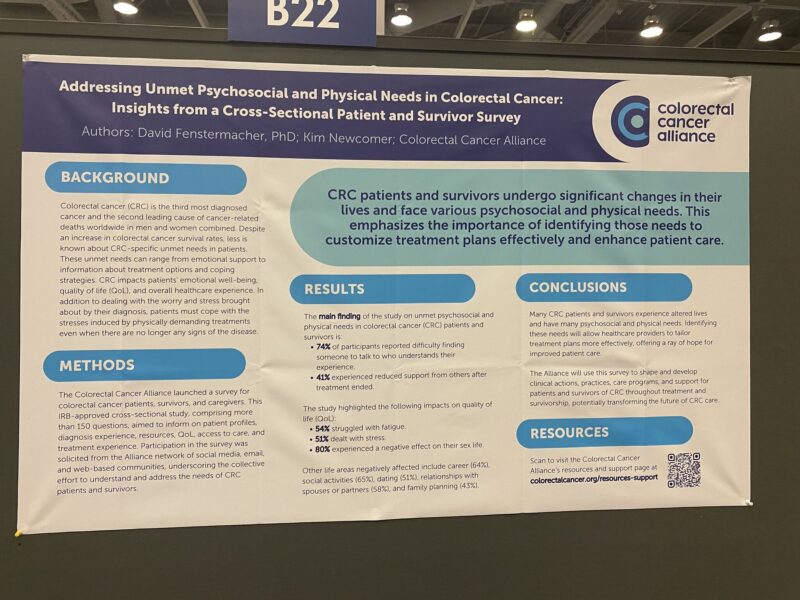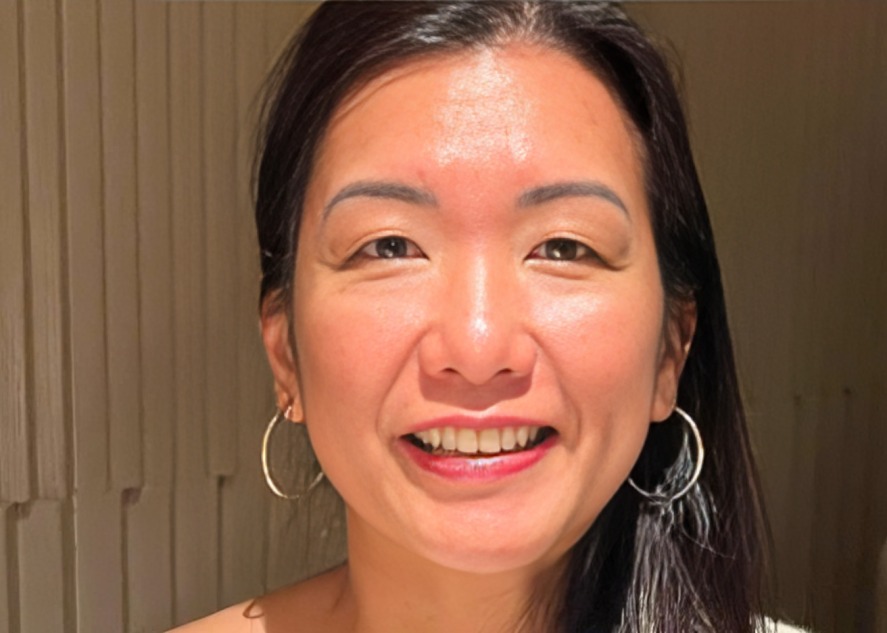Nancy Chun, Medical Director of Parexel, Medical Oncologist/hematologist at Massachusetts General Hospital shared a post on LinkedIn:
“Hello!
No fancy visuals, but I’m here to share a picture of an important poster presented at ASCO GI 2025, held this past weekend in San Francisco. The Colorectal Cancer Alliance conducted a study titled “Addressing Unmet Psychosocial and Physical Needs in Colorectal Cancer: Insights from a Cross-Sectional Patient and Survivor Survey.”
As a breast cancer survivor, I draw parallels between the findings of this study and those seen in breast cancer survivors. Both groups face significant psychosocial and physical challenges.
74% of participants reported difficulty finding someone to talk to who understands their experience.
80% experienced a negative effect on their sex life.
Quality of Life (QOL) studies are often not the ones that get presented in “late-breaking abstract” or plenary sessions, but the findings are crucial because they represent the VOICE OF PATIENTS.
I admit that it wasn’t until recently when I was diagnosed with breast cancer and faced my own struggles that I embarrassingly admitted to myself that as a triple-board trained physician, I was not trained to address the psychological needs or sexual health of patients. But now, I am empowering myself to learn. After all, that is what a medical education helps a physician/provider/clinician do – provides us with the skills for lifelong learning.
If you are in direct patient care or have influence over patient care operations, I ask that you take inventory of your cancer program:
1) Does your Survivorship Care Plan include assessments of Sexual Health and Mental Health?
2) Do you provide Survivorship Care Plan to all cancer survivors, not just those who have completed adjuvant therapy?
3) Are you routinely asking patients about their psychosocial and sexual health the way you ask patients about medications and smoking status?
4) Do you have appropriate resources to guide patients? I believe patients do not expect you to have all the answers but they do expect us to point them in the right direction.
If you don’t know where to start, take baby steps and review NCCN guidelines:
1) Survivorship Assessment SURV – this is a list of questions that may be asked at every visit by the clinical team or via survey.
2) Refer patients to NCCN Guidelines for Patients: Survivorship Care for Cancer-Related Late and Long-Term Effects.”

